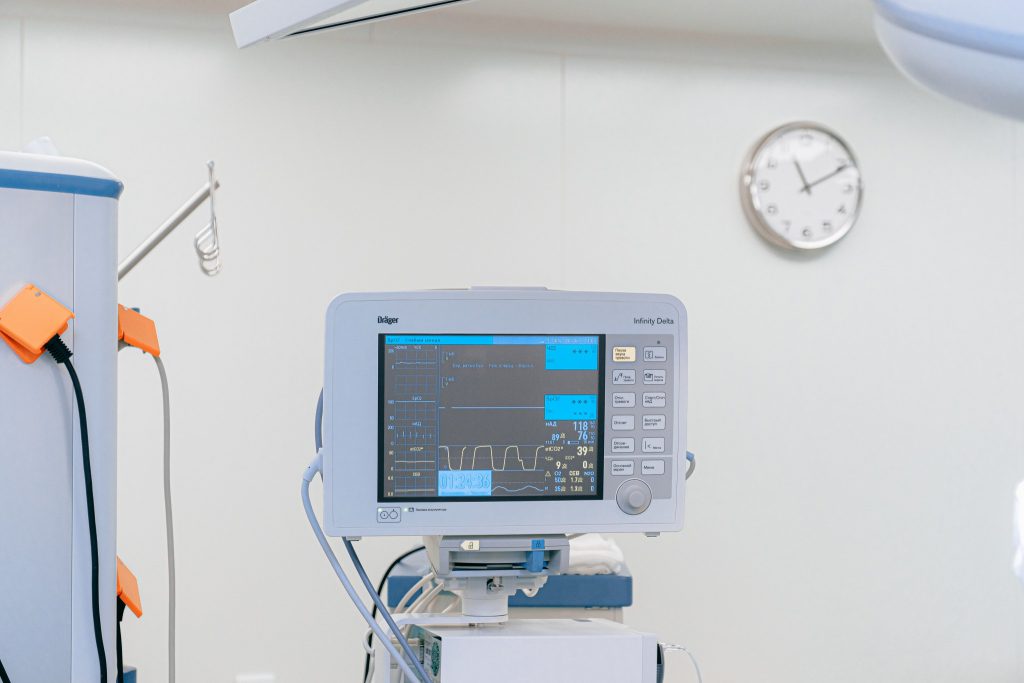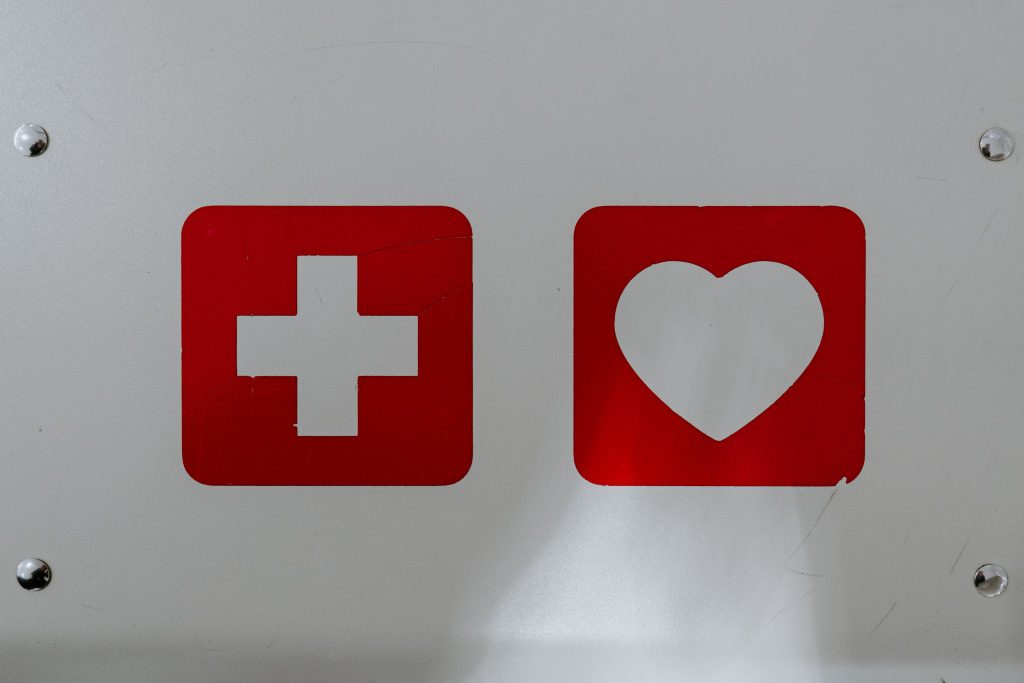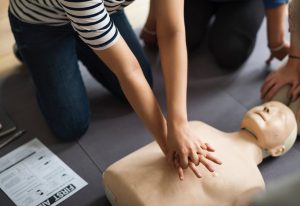When a person goes into sudden cardiac arrest outside of a health care facility, there is a specific sequence of events that, if performed fully and efficiently, can significantly improve their chances of survival and recovery. This is known as the Out-of-Hospital Chain of Survival.
According to the American Heart Association, there are six steps in this process. Each is vitally important to a cardiac arrest patient’s survival. It’s important to understand the chain and what role you might play, should you encounter someone in sudden cardiac arrest.
The Six Steps of the Out-of-Hospital Chain of Survival

- Recognition of cardiac arrest, and activation of the emergency response system (calling 911)
- Performing CPR as quickly as possible, with an emphasis on chest compressions
- Defibrillation with an AED
- Resuscitation and advanced care performed by emergency medical responders and health care providers
- Additional care performed after the cardiac arrest
- Recovery treatment, rehabilitation or observation as needed
A Bystander’s Role in the Chain of Survival
The first three steps of the chain must often be performed by bystanders, whether or not they know the patient. If nothing else, it’s vital to understand when a sudden cardiac arrest is taking place, and to call 911.
But performing CPR as soon as possible is key to improving outcomes. According to data from 2014, almost 45 percent of people who suffer cardiac arrest outside of health care settings survived when bystander CPR was performed. And because about 70 percent of cardiac arrests take place in the home, the life you save may be that of a family member.
Ready to get started with CPR? Schedule a CPR training course today.
HeartCert CPR is your trusted training partner for CPR, ACLS, PALS, EMR and First Aid in the Twin Cities and throughout Minnesota.
HeartCert CPR courses include CPR/AED/First Aid and CPR/AED, Basic Life Support (BLS), Advanced Cardiac Life Support (ACLS), Pediatric Advanced Life Support (PALS), and Certified Nursing Assistant training. Courses and certifications from both the American Heart Association and American Red Cross are available.
We are now offering virtual CPR courses and certifications, as well as safe in-person courses at our headquarters, HeartCert CPR Eagan.










